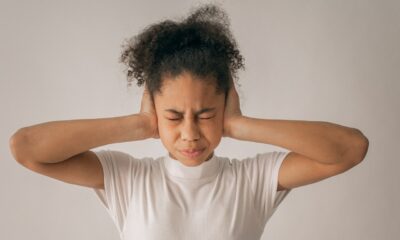Features
Jean Clare Oge: When it comes to Mental Health, We All Live in Glass Houses
The World Health Organization defines mental health as ‘a state of well-being in which every individual realizes his or her own potential, can cope with the normal stresses of life, can work productively and fruitfully, and can contribute to her or his community’. I hope you understand better when I say that there is no health without mental health.
There is no health without mental health.
The connection between mental health and physical health is one that is often misunderstood. They’re often thought of as separate entities when, in fact, both go hand in hand – this is how the public views mental health. This makes it difficult for people to share their struggles and seek help. For instance, when someone opens up about their struggles with illnesses such as depression, I see snide remarks that undermine the extent of their struggles. People go on to make it a ‘them’ problem that can never happen to ‘me’.
What comes to mind when you think of mental health: the homeless person on the street? A suicidal person? Someone who talks to themselves as they walk?
The Popular Misconception
The first misconception is thinking that mental health and mental illness mean the same thing. They don’t. Mental health is about your psychological well being. Just like we all have physical health, everyone has mental health.
Mental illness refers to a wide range of disorders that affect our mood, how we think, behave, and interact with others. There are several mental illnesses that have diverse symptoms that affect people in different ways. Some examples are depression, anxiety, schizophrenia, etc. Mental health impacts on our abilities to be resilient, to manage life’s challenges and stresses, to make sound decisions, and to effectively have meaningful relationships. Just like physical health, it is important at every stage of life, from childhood and adolescence through adulthood and old age.
Understanding the concepts
I have learned a couple of analogies that can help us understand these concepts better. One allows us to think of our mental state as a continuum. It places good mental health at one end and diagnosable mental illness at the opposite end. At any point in time, we are somewhere on that scale. Just like people move on a continuum in physical health – from good health to poor health, illness, or disability, you can understand that our mental state is not constant.
There are the occasional health problems that can be resolved quickly, some take longer to resolve, and others can last for a long time. This is the same with mental health. Depending on some life’s challenges, physical, environmental, and/or biological factors, your mental health can be adversely impacted, making you move further down the scale. This includes your thinking, mood and behaviors. It may last for a short while, persist even longer, and if it is intense or continues to go unresolved, it can lead to mental illness.
Mental Health and Physical Health
Poor mental health directly impacts our capacity to effectively overcome the challenges of today’s fast life. This is due to the chemical processes that take place in the brain, which, in turn, can potentially elicit the internal and external hallmarks of mental illnesses. The perceived disconnect between the mind and body creates the misconception that mental and physical well-being are not inextricably linked. In reality, mental health is a very vital aspect of health. It directly impacts our quality of life, and our abilities to function effectively.
Not everyone will experience mental illness. However, everyone will struggle or have a challenge with their mental health. Just as one may feel unwell but may not have a serious health challenge, one can have poor mental health without having a mental illness. Even though there are risk factors, there is no formula for determining your capacity to withstand triggers. So, evidently, we are all susceptible to mental illnesses – only at different scales. I don’t think anyone ever woke up and decided ‘today is a good day for me to have a mental illness‘. It can affect anyone regardless of your age, background, or socioeconomic status.
With this in mind, understand that mental illness is not something a person can just overcome with willpower. It is not an on and off switch. Like physical health problems, it has to be addressed.
The World Health Organization defines mental health as ‘a state of well-being in which every individual realizes his or her own potential, can cope with the normal stresses of life, can work productively and fruitfully, and can contribute to her or his community’. I hope you understand better when I say that there is no health without mental health.






















